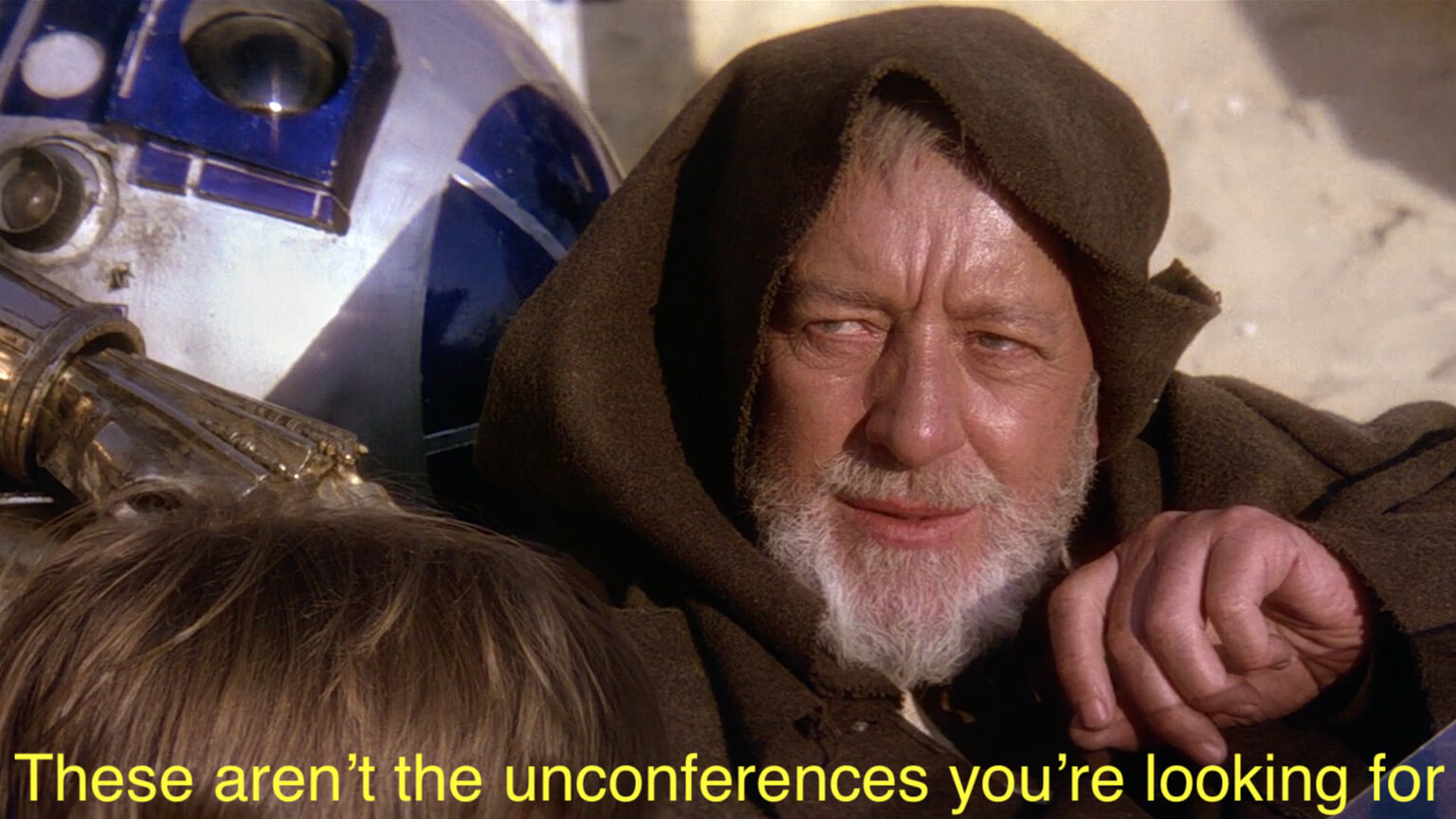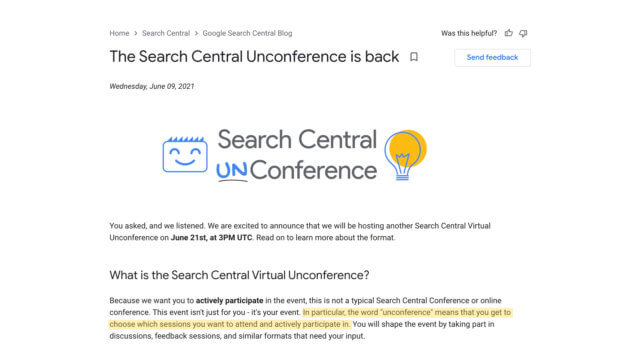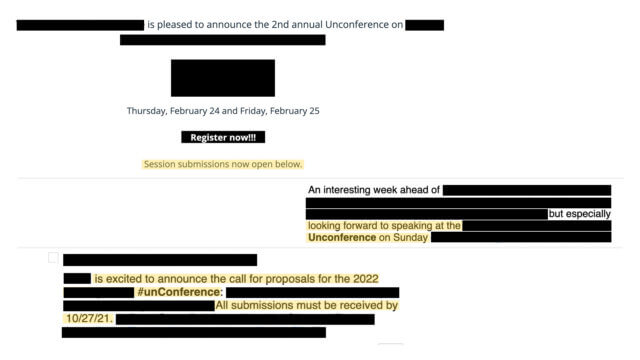
I’m noticing that event promoters are increasingly using the word “unconference” to describe traditional conferences. <Sigh>. Please stop doing this! There’s a big difference between unconferences and traditional events.
Here’s how Wikipedia defines an unconference:
“An unconference is a participant-driven meeting.”
“Typically at an unconference, the agenda is created by the attendees at the beginning of the meeting.”
—Unconference, Wikipedia
Well, surely titan Google would accurately describe their annual Search Central unconference?
Nope.

“In particular, the word ‘unconference’ means that you get to choose which sessions you want to attend and actively participate in. You will shape the event by taking part in discussions, feedback sessions, and similar formats that need your input.”
The Search Central Unconference is back, Google Search Central Blog
Wow. According to Google, “‘unconference’ means that you get to choose which sessions you want to attend”. Umm, Google, that’s what happens at every conference! Oh, you also get to “actively participate in” sessions? Google, we call that “having a discussion” or “a breakout”.
Dave Smart’s blog post My experience of the Google Search Central unconference makes it clear that Google chose the entire conference program beforehand.
Abraham Lincoln once posed the question: “If you call a dog’s tail a leg, how many legs does it have?” and then answered his own query: “Four, because calling a tail a leg doesn’t make it one.” Sorry, Google, but calling your conference an unconference doesn’t make it one.
Let’s call what you’re doing an ununconference.
Sadly, Google is not alone.
A few examples of ununconferences
Here are three ununconferences that people promoted this week. I noticed several others, but adding all those black bars to remove identifying information takes time. Twitter is full of folks who already know they’ll be “speaking” at an ununconference (e.g., the second example). The last example announces that their “unconference” is closing session proposal submissions six months before the actual event!

Conference programs that are predetermined with attendee input are not unconferences
I have been convening and facilitating unconferences for 32 years. (I prefer the term peer conferences, but no one else cares.) Why? Because they provide a far better conference experience. Better, because creating the conference program in real time at the start ensures that the event optimally meets participants’ in-the-moment wants and needs.
In 2010, I explained why asking attendees in advance for program suggestions doesn’t work. And a couple of years later, I shared why a program committee or the mythical “conference curator” doesn’t do any better:
“In my twenty years of organizing conferences, I’ve never found a program committee that predicted more than half of the session topics that conference attendees chose when they were given the choice. During that time I’ve seen no evidence that any one person, whether they are given the title of “curator” or not, can put together a conference program that can match what attendees actually need and want.
—Jeremy Lin and the myth of the conference curator, February, 2012
Seth Godin puts it this way: “We have no idea in advance who the great contributors are going to be.” Just about every unconference I’ve convened or attended, has brought to light participants whose valuable knowledge, expertise, experience, and contributions were unknown to the conveners (and most, if not all, of the attendees). You can’t do this effectively at a traditional conference with a predetermined program.
Unconference is not a marketing soundbite
Marketers: Stop using “unconference” as an event marketing buzzword. We’re not selling cereal here. As Robert Kreitner says, “Buzzwords…drive out good ideas.” Unconferences are participant-driven, which involves building the program in real time during the event. Having (well-designed) discussion sessions during an event is great, but that doesn’t make a meeting an unconference.
Meeting conveners: Learn about what unconferences actually are before calling your event one. (Any of my books will give you detailed information about these meeting formats, and how well they work.)
I care about how people use the word “unconference” because I’ve met too many folks who believe that an event that’s billed as an unconference must be one. Then they attend and are underwhelmed. I’d hate to see unconferences suffer because marketing folks see the word as a way to make an event sound hip, sophisticated, and cool. Let’s banish the ununconference instead!
